CONQUER YOUR HYDRATION & INCREASE YOUR PERFORMANCE
START YOUR JOURNEY TO BETTER PERFORMANCE NOW

By GARETH LYNCH
Do you want a simple formula to increase your performance by as much as 30%, increase your cognitive performance, mood and reduce your fatigue? Keep reading to see how hydration can change your performance.
Dehydration decreases your aerobic performance, reduces repeated anaerobic power, lowers your cognitive function and mood and Increases your fatigue levels.
Today I am going to teach you:
Why do we need water?
Dehydration’s effects on performance (Cognitive & Physical Performance).
How to know if you are drinking enough water.
How to stay hydrated and rehydrate.
Two easy ways how to monitor your hydration.
Practical guide to conquering your hydration.
Set you a Hydration Challenge.
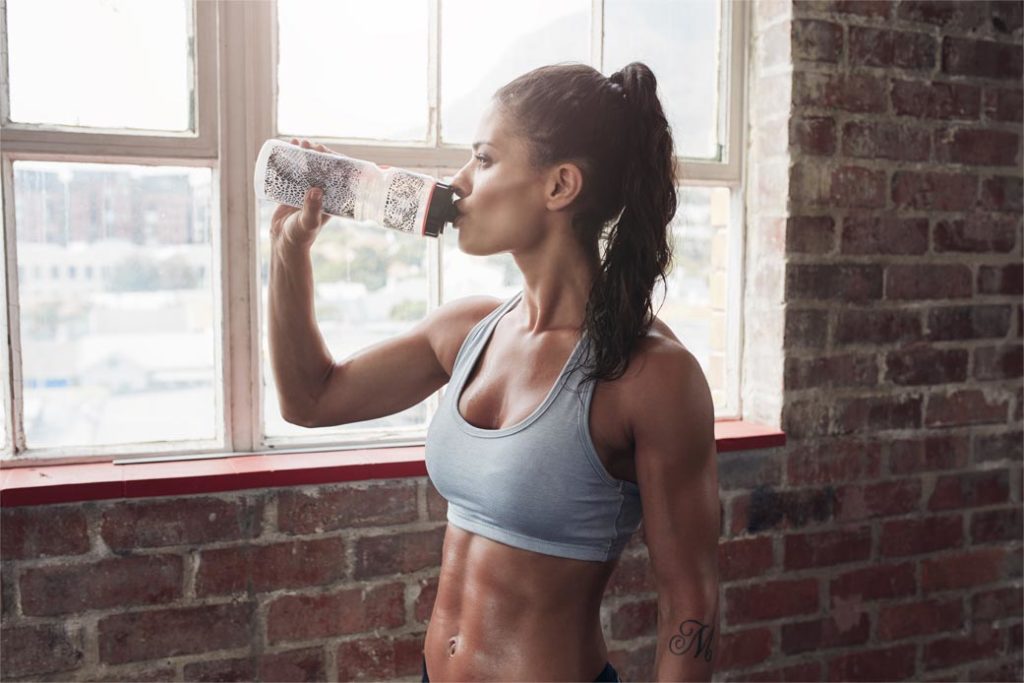
Why Do You Need Water?
Water makes up a large percentage of the human body and is one of the fundamental building blocks. According to Dr. Jeffrey Utz, of Allegheny University, different body types store different percentages of water. Lean muscle tissue stores more water than fat tissue, so generally male bodies store more water than females. Men are made of approximately 60% water while a woman’s body is generally made of about 55% water.
Water serves a number of essential functions to keep you healthy:
It regulates your internal body temperature through sweating and respiration
Helps dissolve and transport minerals and nutrients making them accessible to your body
Moistens tissues of your eyes, mouth and nose and forms saliva.
Lessens the burden on your kidneys and liver by flushing out waste mainly through urination.
Protects your body’s organs and tissues.
Lubricates & Protects tissues, spinal cord, and joints
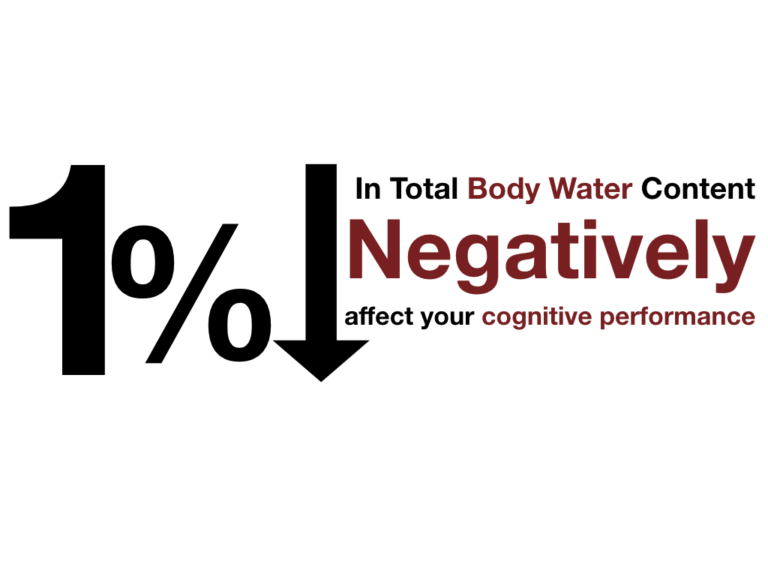
Dehydrations Effect On Performance
There are numerous studies highlighting the effects that dehydration has on cognitive performance. They range from a decrease in aerobic and anaerobic performance, lower cognitive function, decreased mood and an increase in perceived rate of exertion.
Cognitive Performance
Dehydration, can have a substantial impact on your cognitive performance, brain function, behaviour and may impact your quality of life as you go about your daily activities. The importance of an optimal hydration state for peak cognitive performance has been highlighted by a range of studies.
Several studies indicate, dehydration levels as little as 1% reduction in body weight may adversely affect cognitive performance and mood. In addition, when a 2% or more reduction in body weight is induced by heat and exercise exposure, decrements in visual-motor tracking, short-term memory and attention are reported.
Studies have been carried out, testing the effects of dehydration on performance in real-life tasks such as airplane piloting. Results showed flight performance and spatial cognition test scores were significantly poorer for pilots who had low fluid intakes and experienced dehydration in comparison to hydrated pilots. Similarly, a study of golfers also showed that mild dehydration can impair shot distance, accuracy, and distance judgment during golf performance (1,2).
Pawson et al., investigated how drinking-water may be related to university students’ performance in examinations. They observed the number of students who took drinks to university examination sessions and compared the performance of these students with that of those who did not take a drink. The results revealed a positive relationship between water taken to the examination session and performance in examination (3).
This accumulating evidence supports the notion that dehydration impairs cognitive performance, short-term memory and visual perceptual abilities, as well as causing mood disturbance.
Physical Performance
The importance of an optimal hydration state for adequate physical performance has also been highlighted by a range of studies.
Running
Nielsen et al., showed a 30% reduction in power output occurred in a running test (carried out in cool conditions) lasting about 7min (4). Another Test, carried out under simulated race conditions, showed that 1500m runners ran 3.7% slower when they were dehydrated by about 1.5–2% of body mass before exercise. 3.7% represents 6s at world‐class 1500m pace (5).
Soccer
In a study by McGregor et al., fluid restriction was accompanied by greater perception of effort late in the shuttle run protocol as well as degraded ability to sprint late in the shuttle run. Time to complete the soccer dribbling task was increased 5% when no fluid was consumed, but maintained when fluids were consumed (6).
A subsequent study by Edwards et al., reported that soccer players accruing modest dehydration during exercise and match play (fluid deficit ~2% of initial body mass) perceived exercise and match play as more difficult compared to when fluids were consumed during breaks and finished with a higher internal body temperature (7).
Rugby
Aldridge et al., found that heart rate, rate of perceived exertion and VO2 variables increased significantly under dehydrated conditions when compared to hydrated conditions and therefore have a detrimental effect on performance (8).
Basketball
It was shown that basketball players with dehydration levels of ~2% body mass made fewer basketball shots and were slower at sprinting and lateral movement test. (9)
Cricket
Devlin et al., reported that cricket bowlers are less accurate when dehydration exceeds 3% body mass loss (10) .
Resistance exercise performance
Judelson et al., showed that when evaluated as a function of the percentage of total work completed during a six-set back squat protocol, dehydration significantly decreased resistance exercise performance during sets (11).
These negative effects that dehydration has on performance highlight the need for optimal hydration levels to enhance both physical and cognitive performance. So, now that we know that dehydration leads to poor performance, what do we do? We need to establish if you are drinking enough water on a daily basis.
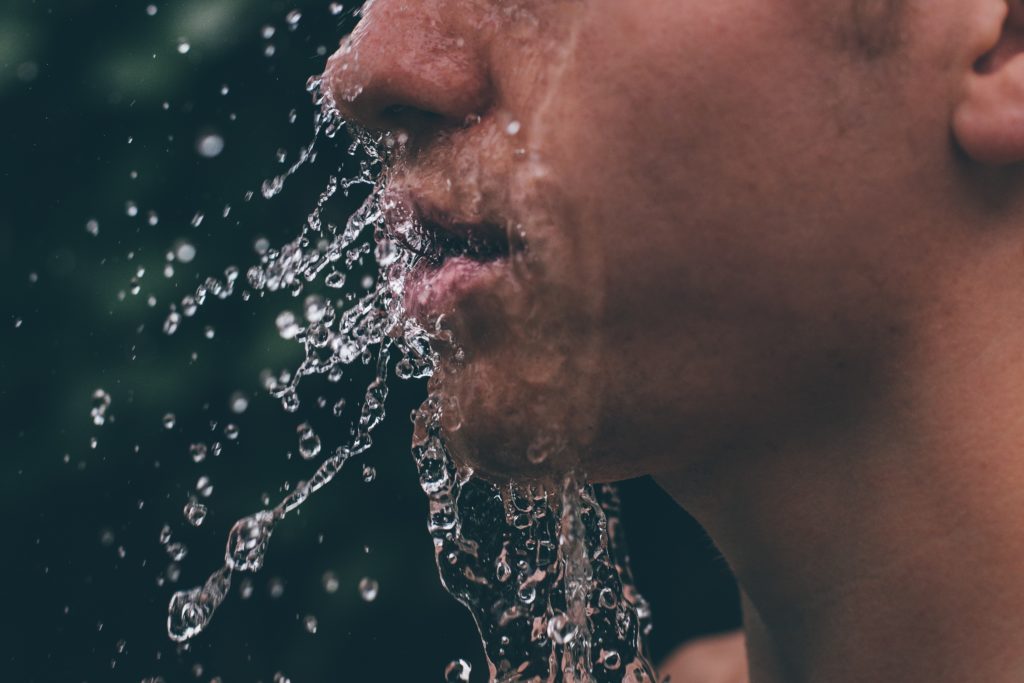
Are You Drinking Enough Water?
Despite availability of adequate fluids, people generally do not drink enough to fully hydrate and compensate for sweat losses. It is recommended that a total daily water intake for men is 3-3.7 litres and women 2-2.7 litres of water a day (12,13,14). A more individualized way to calculate how much water your should be consuming is 33ml multiplied by your body weight in kilograms. So an 80kg individual should be drinking 2.64L of water a day (80*0.033 = 2.64L).
Are you drinking enough water or are you in a state of mild dehydration? There are many signs of dehydration and recognising is important to take reactive measures to rehydrate
Dehydration signs:
Little or no urine.
Urine that is darker than usual (see water colour chart)
Dry mouth.
Sleepiness or fatigue/ lack of energy
Poor mood.
Extreme thirst.
Headache.
Confusion.
Dizziness or light-headedness.
Loss in body weight post exercise
Waiting to recognise these symptoms is not the best practise as you are already dehydrated at the onset. You should be pro-active and actively prevent dehydration by drinking water consistently to ensure you are performing at your optimal level.
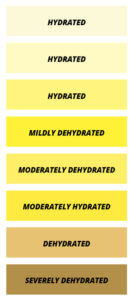
8 Colour Scale To Check Hydration Levels
How To Stay Hydrated And Rehydrate
Maintaining proper hydration before, during, and after training, competition or knowledge work will enhance performance by:
Reducing fluid loss
Lowering submaximal exercise heart rate response
Preventing injuries associated with dehydration and sweat loss
Reducing heat stress
Maintaining plasma volume
Delaying fatigue
Increasing mood
It is recommended that you drink about 500 mL of fluid solution 1 to 2 hours before an event and continue to consume cool drinks in regular intervals to replace fluid loss due to sweat.
What is in your sweat?
Your sweat contains a variety of electrolytes such as sodium chloride and potassium with small amounts of calcium, magnesium, iron and other trace minerals. The composition of sweat is influenced by many factors, including sweating rate, diet and acclimation status (15). You need to replace electrolytes lost through sweating. However, of all the components, it seems to be the sodium loss that is most significant to replace for performance.
Two factors that you need to consider for the restoration of fluid balance is consumption of both an adequate volume of fluid (greater than the net deficit of the sweat volume lost) and quantity of sodium. Without both of these, your rehydration will be neither rapid nor complete and maintained.
The current generation of commercially available sports drinks are generally formulated to meet more than just hydration needs. Many are designed to restore muscle glycogen. However, muscle glycogen restoration can be comfortably achieved by consumption of solid food.
“You can’t cross the sea merely by standing and staring at the water.” – Rabindranath Tagore
How To Replace Lost Electrolytes And Water
Many people turn to carbohydrate-electrolyte sports drinks or electrolyte tablets to help rehydrate after exercise. Carbohydrates have the added benefits of replacing glycogen stores but this can normally be achieved through a proper diet.
Sports Drink
Carbohydrate-electrolyte drinks have been shown to improve endurance performance at moderate intensities (60-75% VO2max) of more than 2 hours duration and at higher intensity exercise (≥80% VO2max) with shorter duration ~1 hour. It has been proven that during a 60min Cycling time trial cycling, when subject took a Carbohydrate-electrolyte drink they had a 2.3% increase in performance compared to when they took a flavoured water mix (19).
It has also been shown that after a 60min running trail that Carbohydrate-electrolyte drinks are more effective than distilled water or lemon tea in restoring fluid balance during short-term recovery after exercise-induced dehydration (20). This is most likely due to the electrolytes present in the drink and not the sugary carbohydrate mix.
Coconut Water
Attention has been given to coconut water, as a natural alternative to manufactured sport drinks, with initial evidence suggesting it an effective alternative to maintaining hydration.
In a comparison study coconut water and a carbohydrate-electrolyte sport drink were measured to compare hydration and physical performance.
Following a 60-minute bout of dehydrating treadmill exercise test, no significant differences were noted between coconut water and the sports drink for any measures of fluid retention regarding exercise performance (21).
Mineral Salt
Another alternative option is adding Natural Mineral Salt to your water
In contrast to most of the salt on tables that starts out as rock salt and have few minerals, Mineral Salt comes from water sources, such as Sea Salt and Pink Himalayas Salt. These salts contain not just sodium chloride but a number of other trace minerals such as;
silicon and phosphorus (both necessary for calcium uptake into your bones),
vanadium (which helps with your blood sugar control),
magnesium (a very common deficiency), calcium, and potassium.
The precise balance of minerals depends on where the salt was harvested. A high dietary salt intake, however, may adversely affect blood pressure and cardiovascular risk in salt‐sensitive individuals, and hence not everyone should consume a high salt diet or consume drinks with a high sodium content during exercise.
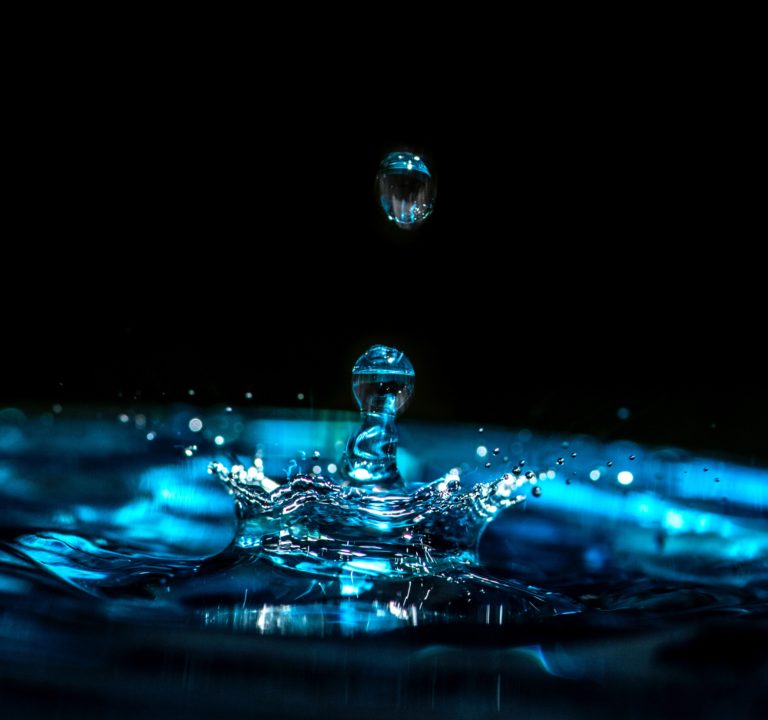
2 Easy Ways How To Monitor Your Hydration
So how do you check your hydration status? You can follow these two methods to give you an idea of pre‐exercise hydration status and post exercise rehydration needs.
Urine Colour Sampling
It has been shown that urine indices are sensitive to small changes in hydration status and have suggested the use of urine colour as a simple means of tracking hydration (22).
Your urine colour is determined primarily by the amount of urochrome, a breakdown product of haemoglobin, present in your sample (23).
Using a scale of eight colours (see chart) it has been concluded that urine colour can be used to estimate hydration status (24). You simply need to compare the colour of your urine to the colours indicted on the urine chart.
When large volumes of urine are excreted, the urine is dilute and solutes are excreted in a large volume of urine, which is very pale in colour. This means that you are hydrated.
When small volumes of urine are excreted, the urine is concentrated and the solutes are excreted in a small volume. This generally gives the urine a dark colour. This means that you are likely dehydrated.
A few dietary factors may confound urine colour, but these can normally be accounted for.
Beets, blackberries, and rhubarb can temporarily turn urine pink or red, which can be alarming, because it may be mistaken for blood
Rhubarb can also turn urine dark brown or tea-coloured, as can fava beans and aloe.
Carrots, carrot juice, and vitamin C can colour urine orange, and B vitamins can turn it a fluorescent yellow-green.
Body Weight Change
A way to check your changes in hydration status is to weigh yourself pre and post exercise. After some practice you will get an idea of your water loss post exercise of different durations and intensities and in different weather conditions.
The severity of dehydration is categorised by the percentage of body weight loss. Mild dehydration has been defined as 1–2% loss of body weight, moderate dehydration, 2–5% loss of body weight and severe dehydration represented a body weight loss of more than 5% (25).
It is recommended that weight loss should generally not exceed about 1–2% of body mass. If more than this has been lost, then you probably did not drink enough and should drink more next time you exercise.
So, what you need to do is, weigh in and out with same minimal clothing on. The difference in body weight between pre and post exercise is what you need to rehydrate. Remember you need to replace 150% of sweat losses. So, if you have lost 1kg in body weight you will need to rehydrate with 1.5L of water.
It is important to be conscious clothing may hold large amounts of sweat and could alter your body weight reading on the scale, so try weigh-in wearing minimal clothing.
Practical Guide Conquering Your Hydration
We now know how important hydration is to our performance, but the question remains, how do we increase your water intake without sprinting to the bathroom every five minutes?
Here are 6 top tips to conquering your hydrated
1. Drink 500 – 1,000ml first thing in the morning.
Rehydrating first thing in the morning after a long period without water consumption
Increases cognitive performance and boost mood.
Improves energy levels.
Helps to flush toxins through your liver and kidneys and out of your body.
2. Invest in a reusable water bottle. This will help you track your water intake each day.
3. Infuse your water.Whether you prefer limes, lemons, berries, or cucumbers, infusing your water with fresh fruit and mineral salts will help you stay hydrated, without any added artificial sweeteners, preservatives or extra calories
4. Drink before you snack.We all can relate to that needed snack or hungry feeling. Before reaching for the nearest source of calories, drink some water. It has been shown that sometimes our brains confuse thirst with hunger, so next time try hydrating before eating and your hunger pang might vanish.
5. Sticking with H2O when possible will help you skip the unnecessary sugars, additives, and caffeine found in other drinks.
6. Schedule your water. This will help you stay on top of our hydration and stave off any of the unwanted side effects of dehydration.
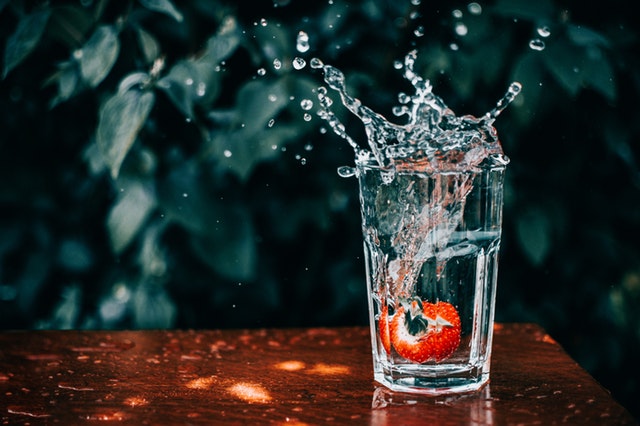
Conclusion
Water makes up a large percentage of the human body and is one of its fundamental building blocks. Being in a state of dehydration is detrimental to both your physical and cognitive performance. It is important for you, as athletes or as a knowledge worker to maintain optimal hydration levels to stay at the top of your performance. To stay optimally hydrated, it is recommended that you take a total daily water intake of 3-3.7 litres as a man and 2-2.7 litres as a woman per a day. You must also replace any fluids lost through exercise. It is also important to replace any electrolytes lost through sweating.
With all that you have just learned about the benefits of hydration, why not try our 7 day hydration challenge. Taking on the challenge will ensure you stay on top of your hydration.
“The hallmark of successful people is that they are always stretching themselves to learn new things.” – Carol S. Dweck
The Challenge
You need to complete all points consistently for 7 days.
Drink 350-500ml of water when you wake up in the mornings
Consume Men 3-3.7L / Women 2-2.7L of water (excludes coffee, fruits juice etc) a day
Measure and replace any sweat lost in exercise with water & electrolytes
Check your hydration against the colour chart.
Let me know how your daily performance, mood and energy levels feel after 7 consistent day
REFERENCES
Lindseth P, Lindseth G, Petros T, et al. (2013) Effects of hydration on cognitive function of pilots. Mil Med 178, 792–798.
Smith MF, Newell AJ & Baker MR (2012) Effect of acute mild dehydration on cognitive-motor performance in golf. J Strength Cond Res 26, 3075–3080.
Pawson C, Gardner MR, Doherty S, et al. (2013) Drink avail- ability is associated with enhanced examination performance in adults. Psychol Teach Rev 19, 57 – 67.
Nielsen B, Kubica R, Bonnesen A, Rasmussen IB, Stoklosa J, Wilk B. Physical work capacity after dehydration and hyperthermia. Scand J Sports Sci 1982: 3: 2–10
Armstrong LE, Costill DL, Fink WJ. Influence of diuretic-induced dehydration on competitive running performance. Med Sci Sports Exerc 1985: 17: 456–461.
McGregor, S.J., C.W. Nicholas, H.K.A. Lakomy, and C. Williams. The influence of intermittent high-intensity shuttle running and fluid ingestion on the performance of a soccer skill. Sports Sci. 17:895-903, 1999.
Edwards, A.M., M.E. Mann, M.J. Marfell-Jones,. The influence of moderate dehydration on soccer performance: physiological responses to 45-min of outdoors match-play and the immediate subsequent performance of sport-specific and mental concentration tests. J. Sports Med. 41:385-391, 2007.
Aldridge, G., Baker, J.S. and Davies, B., 2005. EFFECTS OF HYDRATION STATUS ON AEROBIC PERFORMANCE FOR A GROUP OF MALE UNIVERSITY RUGBY PLAYERS.Journal of Exercise Physiology Online, 8(5).
Dougherty, K.A., L.B. Baker, M. Chow, and W.L. Kenney. Two percent dehydration impairs and six percent carbohydrate drink improves boys basketball skills. Med. Sci. Sports Exerc. 38:1650-1658, 2006.
Devlin LH, Fraser SF, Barras NA, Hawley JA. Moderate levels of hypohydration impairs bowling accuracy but not bowling velocity in skilled cricket players. J Sci Med Sport 2001: 4: 179–187.
Judelson, D.A., Maresh, C.M., Farrell, M.J., Yamamoto, L.M., Armstrong, L.E., Kraemer, W.J., Volek, J.S., Spiering, B.A., Casa, D.J. and Anderson, J.M., 2007. Effect of hydration state on strength, power, and resistance exercise performance.Medicine and science in sports and exercise, 39(10), pp.1817-1824.
Sharp, R. L. (2007). Role of Whole Foods in Promoting Hydration after Exercise in Humans. Journal of the American College of Nutrition, 26(sup5), pp.592S-596S.
Nose H, Mack GW, Shi XR, Nadel ER: Role of osmolality and plasma volume during rehydration in humans. J Appl Physiol 65:325–331, 1988.
Adolph EF: “Physiology of Man in the Desert.” New York: Interscience, 1947.
Maughan, R.J. and Shirreffs, S.M., 2010. Development of hydration strategies to optimize performance for athletes in high‐intensity sports and in sports with repeated intense efforts.Scandinavian journal of medicine & science in sports, 20, pp.59-69.
Davis, B.A., Thigpen, L.K., Hornsby, J.H., Green, J.M., Coates, T.E. and O’Neal, E.K., 2014. Hydration kinetics and 10-km outdoor running performance following 75% versus 150% between bout fluid replacement.European journal of sport science, 14(7), pp.703-710.
Bergeron MF. Heat cramps: fluid and electrolyte challenges during tennis in the heat. J Sci Med Sport 2003: 6: 19– 27.
Stofan JR, Zachwieja JJ, Horswill CA, Murray R, Anderson SA, Eichner ER. Sweat and sodium losses in NCAA football players: a precursor to heat cramps? Int J Sport Nutr Ex Metab 2005: 15: 641–652.
Jeukendrup, A., Brouns, F.J.P.H., Wagenmakers, A.J.M. and Saris, W.H.M., 1997. Carbohydrate-electrolyte feedings improve 1 h time trial cycling performance.International journal of sports medicine, 18(02), pp.125-129.
Heung-Sang Wong, S. and Chen, Y., 2011. Effect of a carbohydrate-electrolyte beverage, lemon tea, or water on rehydration during short-term recovery from exercise.International journal of sport nutrition and exercise metabolism, 21(4), pp.300-310.
Kalman, D.S., Feldman, S., Krieger, D.R. and Bloomer, R.J., 2012. Comparison of coconut water and a carbohydrate-electrolyte sport drink on measures of hydration and physical performance in exercise-trained men.Journal of the International Society of Sports Nutrition, 9(1), p.1.
Armstrong LE, Maresh CM, Castellani JW, Bergeron MF, Kenefick RW, LaGasse KE, Riebe D. Urinary indices of hydration status. Int J sport Nurt 1994: 4: 265–279.
Diem K. Documenta Geigy Scientific Tables. Geigy Pharmaceutical Company Limited: Manchester, 1962: 538–539.
Armstrong LE. Performing in Extreme Environments. Champaign, IL: Human Kinetics, 2000.
Kalman, D.S., Feldman, S., Krieger, D.R. and Bloomer, R.J., 2012. Comparison of coconut water and a carbohydrate-electrolyte sport drink on measures of hydration and physical performance in exercise-trained men.Journal of the International Society of Sports Nutrition, 9(1), p.1.



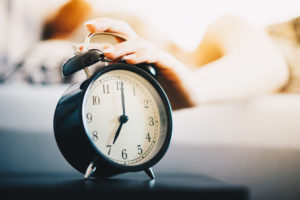
Pingback: Conquering Performance - From Humble Beginnings Come Great Things
Great post. I was checking continuously this weblog and I am inspired!
Very helpful info partcularly the closin part 🙂 I take care of such information a lot.
I was seeking this certain info for a long time. Thank you and best of luck.